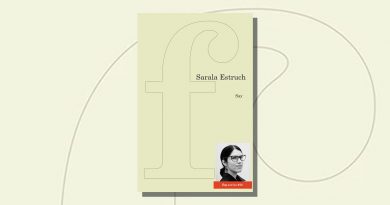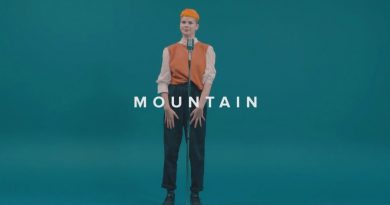FRiGG # 29 – Summer 2010
– Reviewed by Ian Chung –
The first thing one notices about FRiGG is the work of EnoaraF, the graphic artist who has contributed to FRiGG since its inaugural issue. It also just happens to be the very thing whose quality remains most consistent across Issue 29 of this quarterly magazine. His grid-based design for this issue’s Table of Contents is a departure from the more atmospheric images of recent past issues, and to be honest, has the effect of rendering the text less easy on the eye than I suspect most readers would probably prefer. Fortunately, the remaining images that accompany the contributors’ pieces are much more complementary in nature, forming artistic virtual covers that have to be clicked on to access their contents.
However beautiful the graphics though, FRiGG is still, in its own words, ‘a magazine of fiction and poetry’, and it is in the area of fiction that I find Issue 29 to be somewhat lacking in evenness. I had very mixed feelings as I was going through the fiction section, and ended up having to re-read some of the pieces because I just could not decide whether or not I liked them. Part of the problem, I suspect, is that FRiGG includes a small section containing the writer’s comments, either at the end of a piece, or in the case of multiple submissions from the same writer, on a separate webpage. This effectively allows the reader to judge the writer’s stated intentions against the published work, occasionally to the detriment of the latter.
Take Jessica Hollander’s ‘Staring Contests’ as an example. The story deliberately fragments its narrative flow, intercutting scenes from Julia’s domestic life and from when she babysits her boss’s daughter. The daughter is always playing with two Barbie dolls, which one senses by the end of the short story are clearly symbolic of something, but it ultimately falls to Hollander’s own comments to indicate that they are part of the story’s larger political agenda: questioning Laura Mulvey’s theory of the ‘Male Gaze’. The story winds up feeling like something produced for a workshop exercise. Perfectly serviceable, but it never quite grabs you by the throat either. The same might be said of Daphne Buter’s ‘Hell Dogs’, the almost self-consciously postmodernist story that opens Issue 29.
On the other hand, Thomas Cooper’s ‘Storm Drain Bob’ and Billy Middleton’s ‘Trolls’ are both quiet stories that build to a disturbing finish. The sense of menace in Cooper’s story pivots about a one-line paragraph: ‘One day Storm Drain Bob asks, “Hey, kid, ever seen a pussy?”’ The threat he represents at the end is made all the more chilling by the gap between what the boy thinks of him and what the reader can infer from his behaviour throughout the story. Middleton’s piece, at more than 6000 words, is the longest in this issue, but it gives him space to flesh out the fraught father-son relationship between Peter and Ralph, into which their young neighbour (and the horn on his head) intrudes like a thorn. The story’s ending is then surprising and disquieting in equal measure.
In the poetry section, prose poetry nestles comfortably alongside more conventional-looking stanzas, with the majority of poets having submitted extracts from sequences. Laurel Blossom’s selections from her current project The Longitude Problem, a companion to her earlier Degrees of Latitude, provide snapshots of a woman’s life, revealing just enough to make you want to read the poems within the context of a full collection. Donora Hillard’s series of poems, in her own words, ‘is about desire’, written when she moved in with her fiancé. Poems like ‘Champ’ (‘Give me a composition theorist / who wants to drip habanero-laced / honey across my torso’) or ‘The Night Before the Wedding’ (‘You fondled / God a little’) do not shy away from the sensuality of relationships.
Yet it is Tim Tomlinson, whose contributions happen to be the only ones not linked as part of some larger sequence, who delivers the standout poem of Issue 29. ‘Fuck the Troops’ is a blistering indictment of (to borrow Tomlinson’s words) ‘hypocrites [who] use the troops as an excuse to advance hideous, hateful agendas that are actually harmful to the troops and other living things’. His is a decidedly disenchanted, but ultimately, honest perspective:
what do I give a shit about the troops? Or
the heroes, or the first goddamn responders?
Fuck them all. Or put it another way: care
for them as much
as Washington does, and here I’m not talking
about the generals.
…
Let’s care for them as much as
the Secretary
of Defense cares, or as much as both houses
of congress care, as much as the Teabaggers
care about them or me and my goddamn nails,
now boarding.
On the whole, I would say there is more to like than not about FRiGG Issue 29. While not all of the pieces might appeal to everyone (like how I still cannot bring myself to enjoy Daphne Buter’s postmodern ‘Hell Dogs’), the fiction will appeal to those who like their writing slightly dark and offbeat, while the variety of poetic modes showcased also means there should be something for everyone in that section, while EnoaraF’s intriguing graphics certainly give this online magazine a slight edge compared to others that offer up just plain words on a screen.



